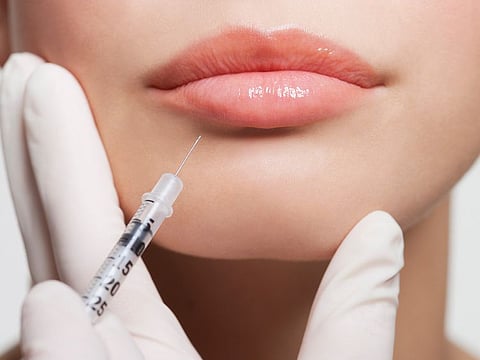Is it OK to get Botox while pregnant?
The safety implications of this popular cosmetic treatment for pregnant women

Botox is the brand name of a substance commercially produced by the company Allergan (it is made by other companies and sold under other brand names too such as Dysport).
It is made from Botulinum toxin, which the bacterium Clostridium botulinum produces. This is the same toxin that causes the serious, paralysing illness botulism.
When used in small doses by a trained professional, this toxin can work to relax certain muscles in the body, which can help with reducing the appearance of skin wrinkles (for which it is most commonly known) as well as other medical uses such as excessive sweating, some bladder disorders and migraines.
The effects of Botox administration during human pregnancy are largely unknown. Although the general consensus seems to be that the poison should not enter the circulatory system of the body and therefore should not cross the placenta if it is administered properly, there has not been enough data to prove this.
The Food and Drugs Administration (FDA) in the US warns that, “The effects of BOTOX and all botulinum toxin products may spread from the area of injection to produce symptoms consistent with botulinum toxin effects. These symptoms have been reported hours to weeks after injection. Swallowing and breathing difficulties can be life threatening and there have been reports of death. The risk of symptoms is probably greatest in children treated for spasticity but symptoms can also occur in adults, particularly in those patients who have an underlying condition that would predispose them to these symptoms.”
Botox is labelled as category C for safety during pregnancy by the FDA, which means that “Animal reproduction studies have shown an adverse effect on the fetus and there are no adequate and well-controlled studies in humans, but potential benefits may warrant use of the drug in pregnant women despite potential risks.”
The FDA recommends that Botox should be “administered during pregnancy only if the potential benefit justifies the potential risk to the fetus”.
With the current lack of thorough data and potential risks to the fetus, most doctors would strongly advise against the use of Botox for avoidable cosmetic purposes while you are expecting.








